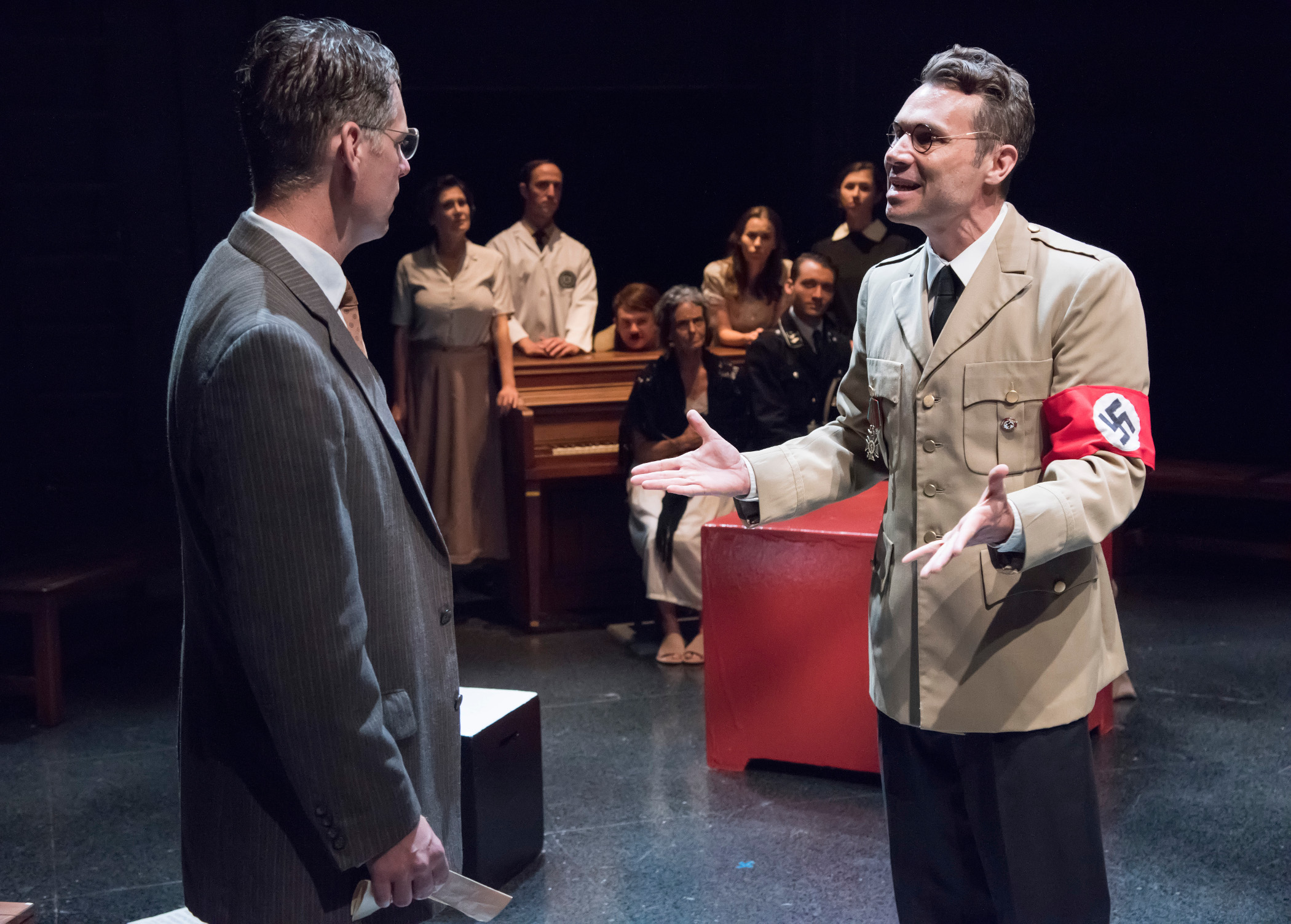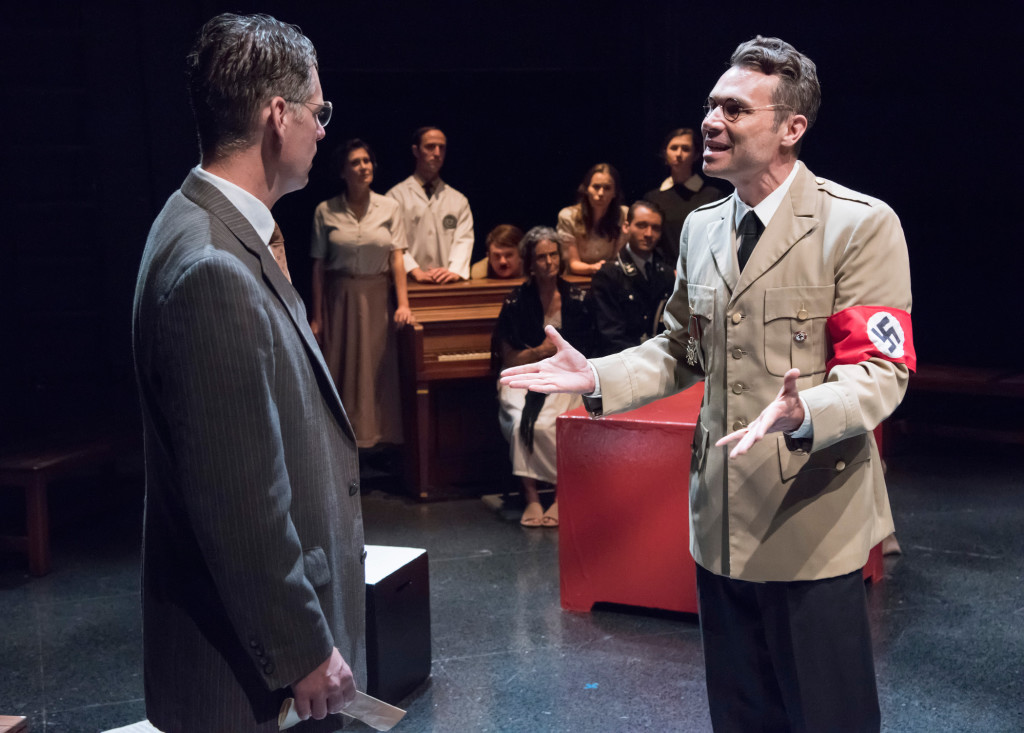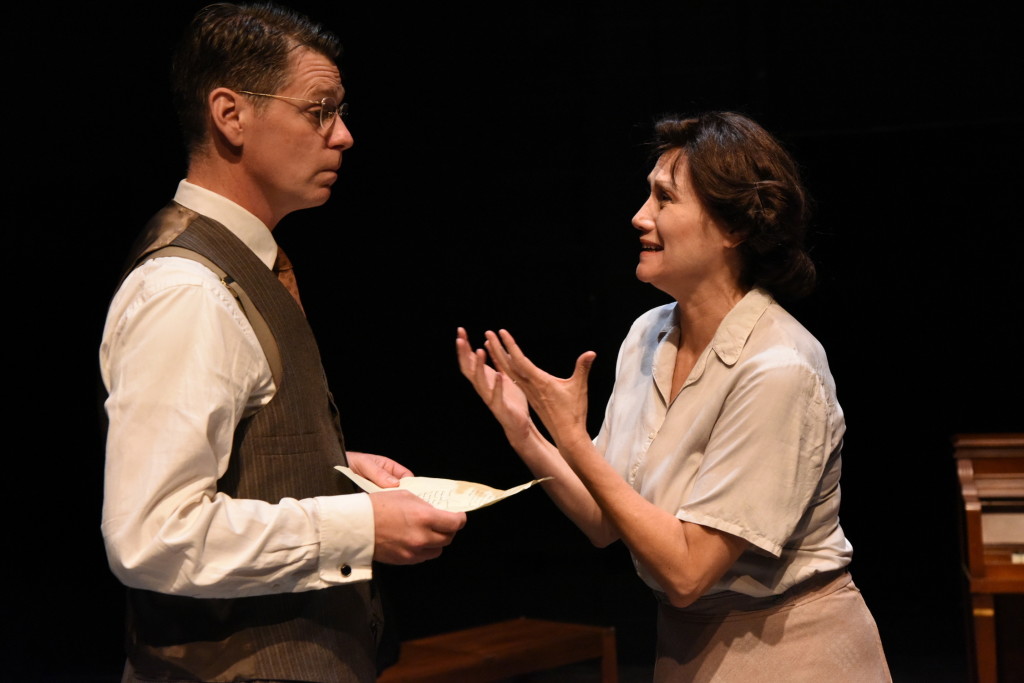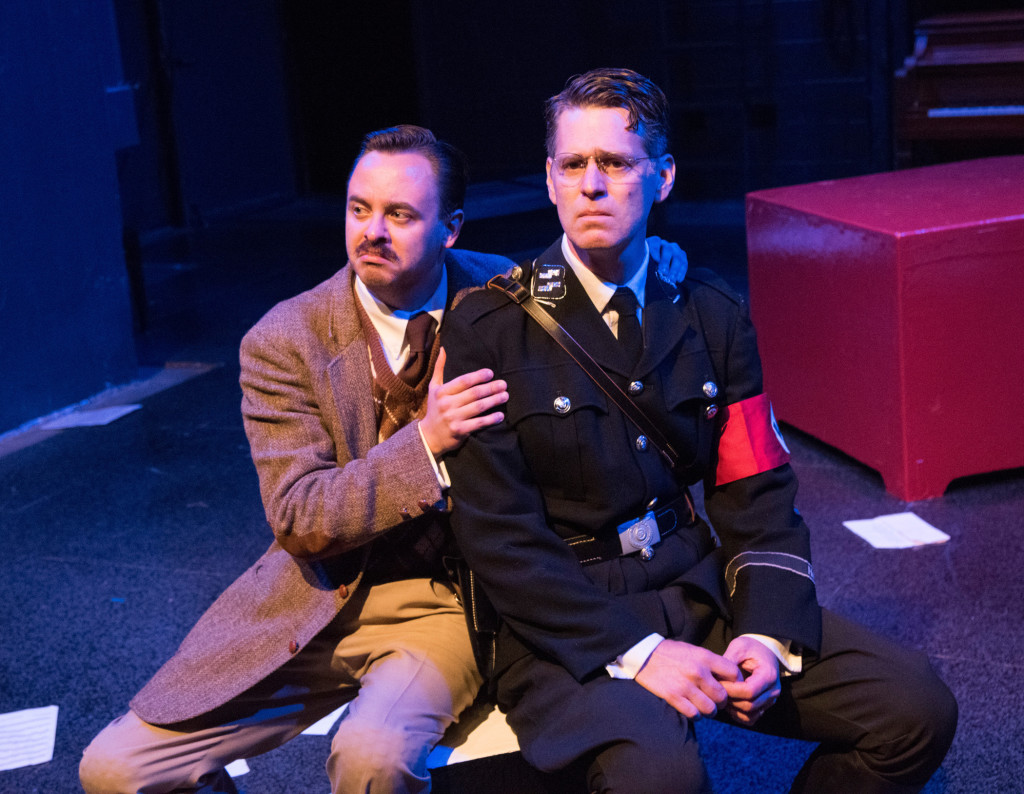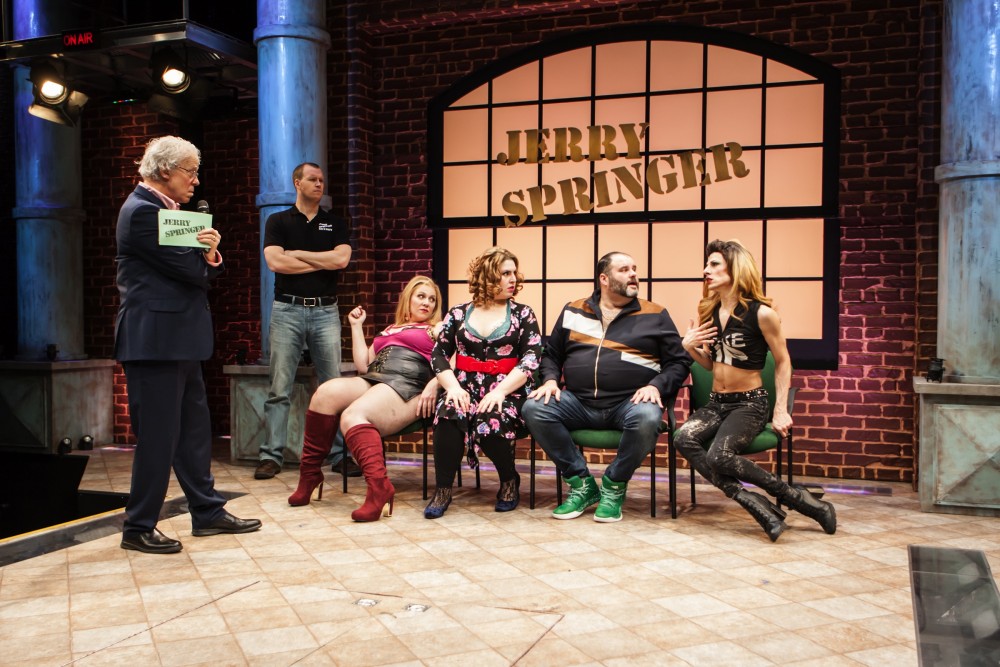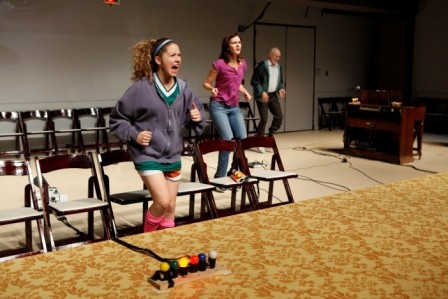By Beatrice Williams-Rude
“Good is better than that; it’s splendid.” I wrote that in Friends Journal, a national Quaker magazine after I saw C.P. Taylor’s magnificent play, Good, on Broadway, circa 1982. My enthusiasm for the current incarnation is more muted.
Good tells the tale of how a seemingly decent man, a cultured college professor, John Halder, can, increment by increment, descend into becoming an agent of arguably the greatest horror of all time. A professor of literature, an admirer of Beethoven and Goethe, becomes a book burner, and all the while great music is playing in his head.
A theme is how people, even as they are committing atrocities, can delude themselves that they are good. Torture is justified as serving some high purpose, a greater good.
A note to the creative team and concept directors generally: “If it aint broke, don’t fix it.”
This is a carefully crafted play. The key is “increment by increment.”
The professor has written a book favoring euthanasia which the Nazis have embraced. They proceed to woo, flatter, seduce and then reward him. His life is chaotic and thus he is vulnerable. He can’t see beyond his own problems and needs even as his Jewish friend and psychiatrist Maurice (delightfully played by Tim Spears) tries acquaint him with the realities.
Prof. Halder ‘s mother (marvelously portrayed by Judith Chaffee) has senile dementia, is shrill, demanding, helpless, frightened and continually saying she wants to end it all (but lacks the means). Thus Halder’s position on euthanasia.
However, euthanasia means mercy killing and the Nazis were anything but merciful. But we know that in hindsight. And therein lies the problem with this production.
The structure of Good takes Halder step by step down the slippery slope. But in this production the Nazis are in your face from the get-go. There is no trajectory, the finale has been telegraphed and there’s no place to grow.
And so the creative team resorts to crude comedy: a singing Hitler more Brooks than Brecht, looking as though he’d stepped out of The Producers. This was so offensive to some that they didn’t return after intermission. While Noah Berman does an excellent job, this is shtick that belongs in some other show.
Helen, Halder’s distraught, dysfunctional wife, is convincingly played by Valerie Leonard; Anne, Halder’s student and lover, is charmingly embodied by Caitlin Rose Duffy. Overall the cast is most effective and several members do double duty.
As Professor John Halder, the protagonist who is onstage throughout, Michael Kaye is superb, comparing favorably with Alan Howard who created the role.
The play is briskly and creatively directed by Jim Petosa.
Another note for the creative team: Trust your audiences. They get it. You don’t need to shout at them, which, in fact, they resent. The play is relevant. The quote by Donald Trump in the program is unnecessary. Better a quote from Edmund Burke or Dietrich Bonhoeffer.
Good runs for two hours and fifteen minutes with one intermission.
It is being presented by the Potomac Theater Project in repertory with No End of Blame at Atlantic Stage 2, 330 West Sixteenth Street, through Aug. 6.
Photos: Stan Barouh


